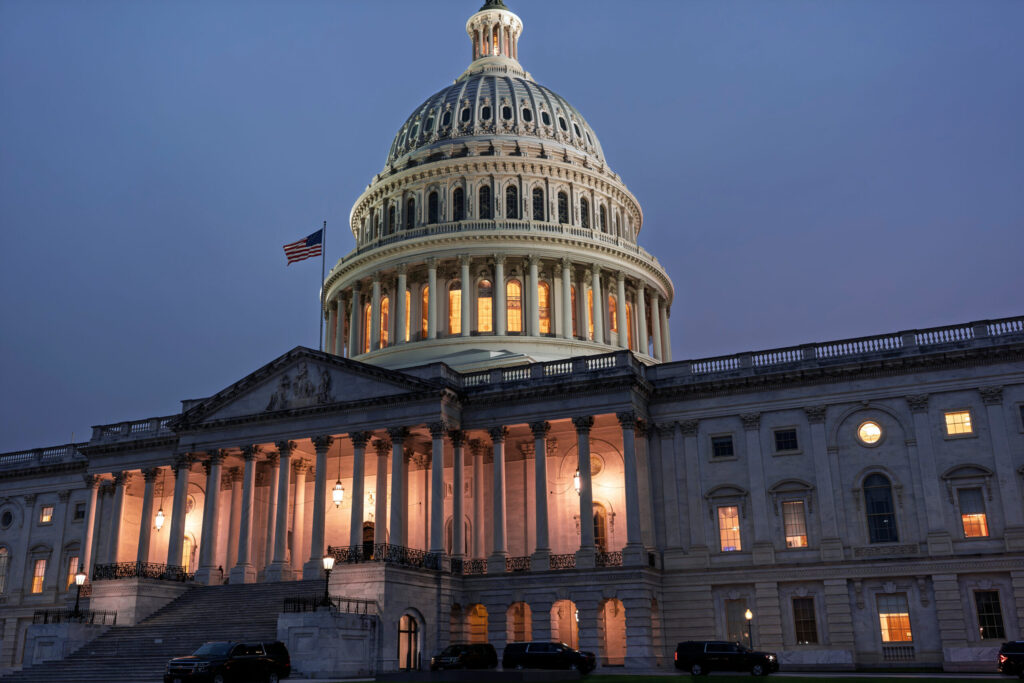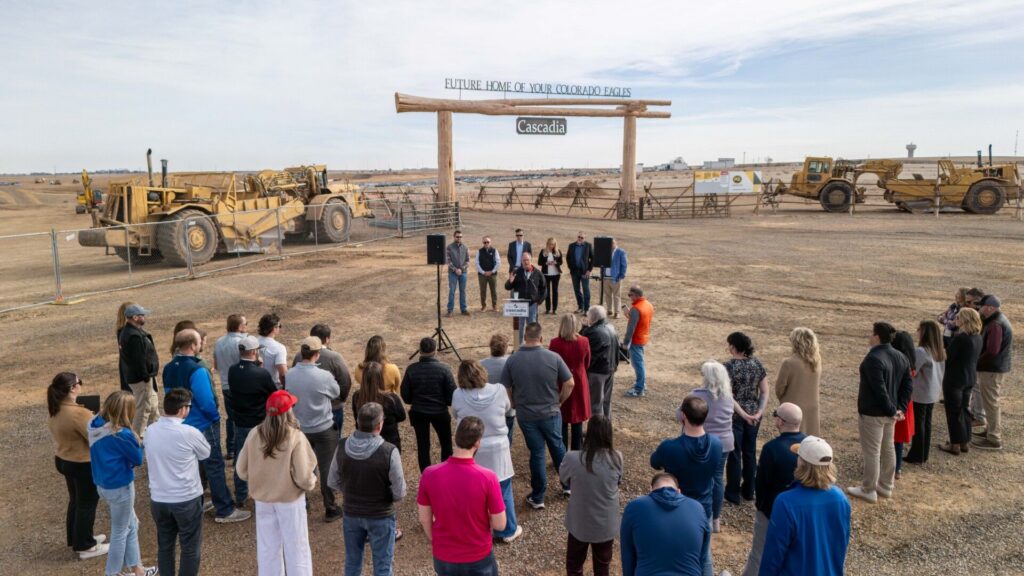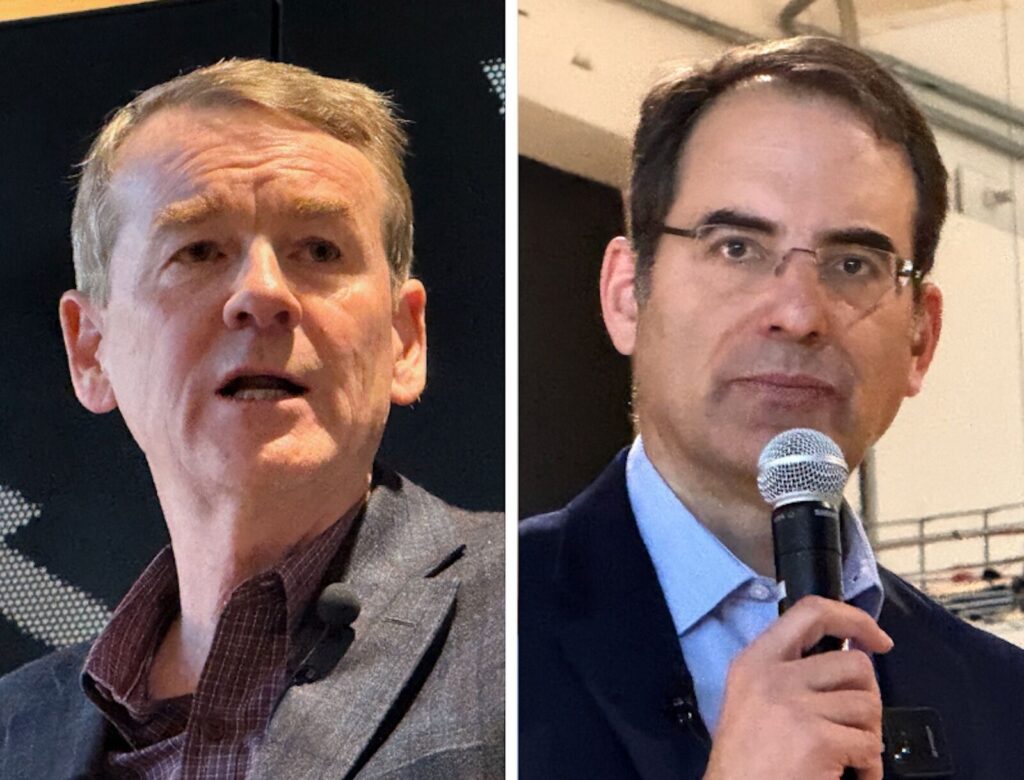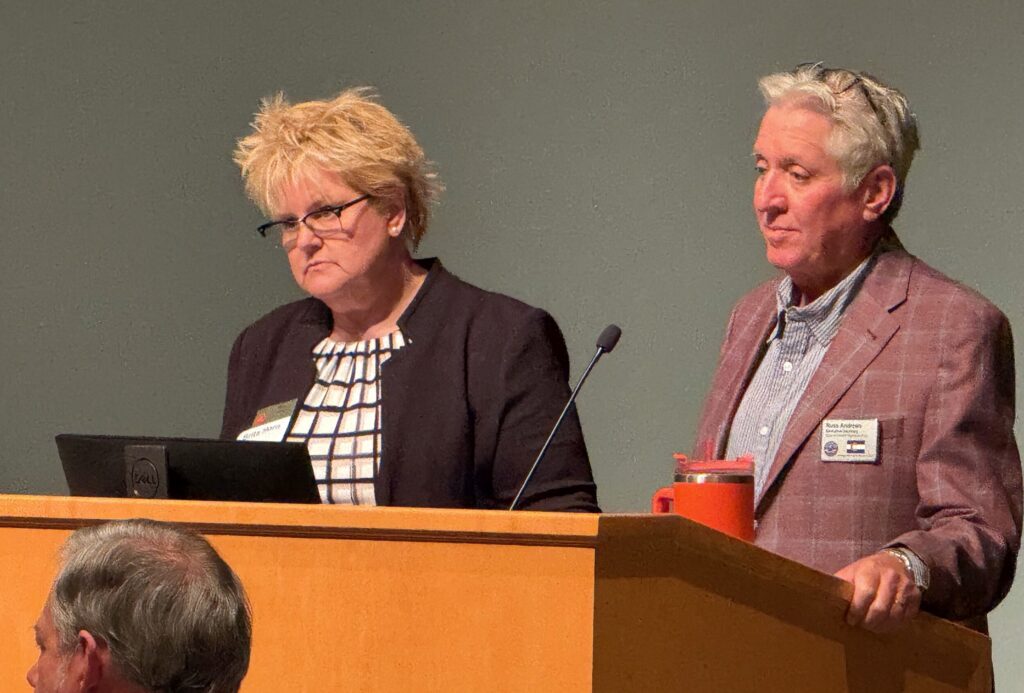COVER STORY | Energy debate heats up the Colorado election
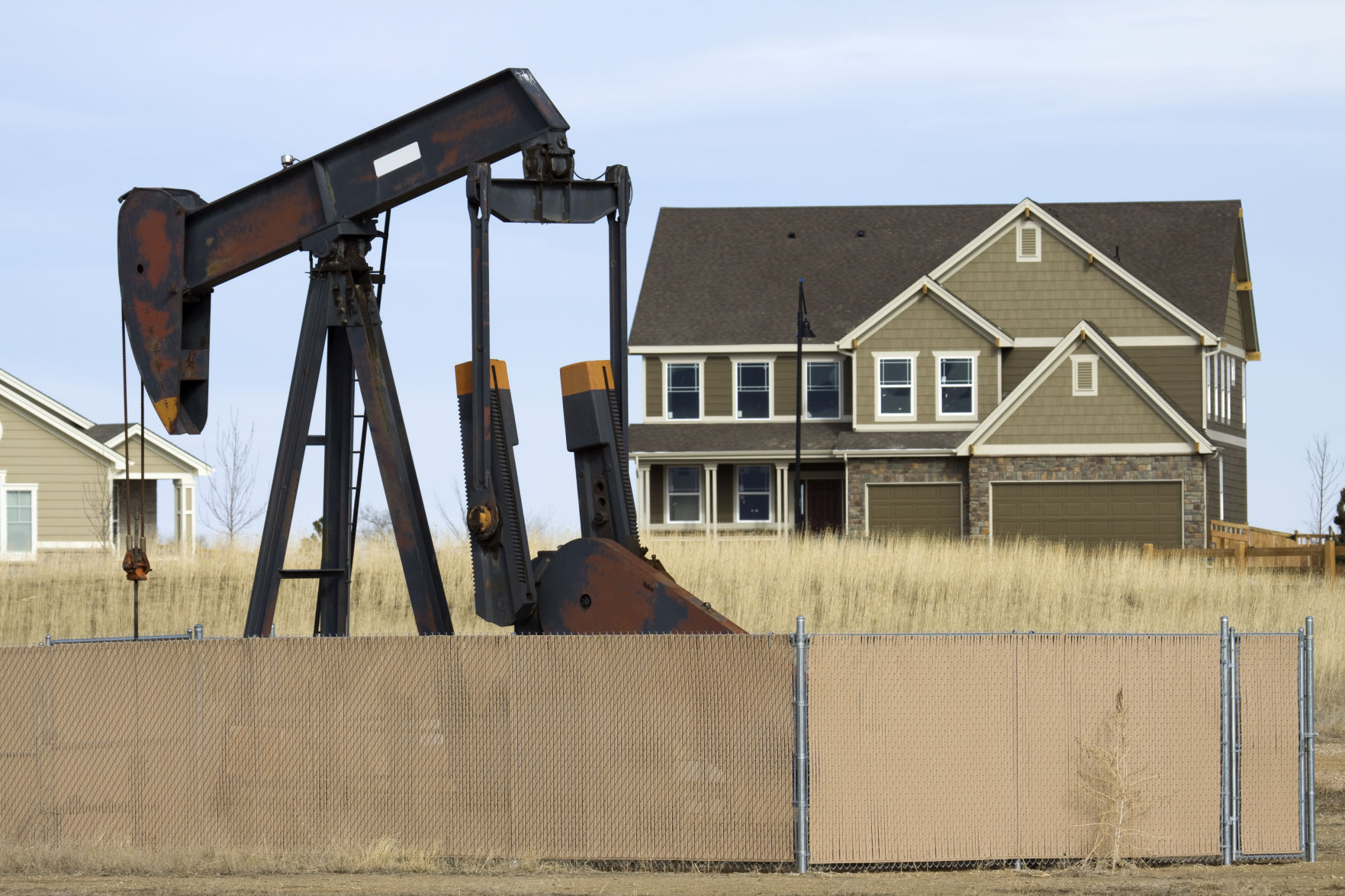
As Coloradans fill out their ballots, choosing their next governor and sorting through a stack of measures, one issue stands tall among many: Energy.
Will Colorado continue its robust development of its bountiful oil and gas resources, or pull the plug near homes and schools? Will the state set ambitious goals to swerve to wind and solar power, or let renewable energy develop at its own pace? And will the next governor be a full-throated advocate of fossil fuels, or one who at times has had frosty relations with the industry?
While Democrat Jared Polis and Republican Walker Stapleton vie to succeed term-limited Gov. John Hickenlooper, two ballot measures out of 13 statewide proposals are drawing much attention – as well as millions of dollars in special-interest money.
Proposition 112 would increase the required distance between new oil and gas development and homes to 2,500 feet from the current 500 feet. And Amendment 74 – a sort of “poison pill” if 112 passes – would rewrite the Colorado Constitution to require government to reimburse property owners if a law or regulation reduces the value of their property – as, say, when an oil company can’t develop its sub-surface mineral holdings because they’re too close to homes.
As a “statutory measure,” 112 needs just a simple majority to pass. As a constitutional amendment, 74 needs a 55-percent super-majority under new rules.
> RELATED: COVER STORY | Energy, environment at forefront of Colo. AG’s race
Neither measure is popular with many Colorado candidates on this year’s ballot – including the major-party candidates for governor. Stapleton and Polis both oppose Proposition 112 and Amendment 74, but there are degrees of nuance in their opposition.
Polis doesn’t necessarily oppose 112’s setback distance – increasing the current 500 feet to 2,500 – but rejects the proposition’s failure to include “surface-use agreements” – private deals between landowners and holders of mineral rights under that land on how resources will be developed.
Stronger setback measures imposed legislatively on a bipartisan basis should be “a backstop for when the landowner and operator can’t reach a surface-use agreement,” Polis told Colorado Oil and Gas Association members in August.
“These agreements are a common-source of income for farmers and ranchers and give them a say over where surface impact occurs on their land so that it doesn’t interfere with their main livelihood,” Polis, Boulder’s congressman, told the industry crowd. “Encouraging homeowners and operators to reach these agreements when conflicts arise is a best practice that should be honored.”
> RELATED: Election Preview 2018 | Colorado governor candidates on the issues
Meanwhile, Stapleton, the state treasurer, has frequently stated his flat-out opposition to 112, with no distinction on setback distances or surface-use agreements.
“[Stapleton] has said numerous times he is completely against this ballot initiative [112],” spokesman Jerrod Dobkin said in an email. “Also, it is important to note Polis has bankrolled a ballot measure to increase setbacks to 2,000 feet. A 2,000-foot setback is just as radical as a 2,500-foot setback and could have led to 62,000 job losses and an $11 billion decrease in Colorado’s gross domestic product.”
Dobkin was referring to Polis’ history on the setback issue. In 2014, spurred in part by his own experience with drilling near his Weld County property the previous year, Polis put his substantial personal wealth behind two ballot questions – one of which would have increased setbacks for drilling operations to 2,000 feet away from occupied structures. A 2016 study by the University of Colorado Boulder’s Leeds School of Business outlined possibly dire economic impacts from that proposal.
But Polis wound up pulling his support for those ballot questions after striking an 11th-hour deal with fellow Democrat Hickenlooper, who agreed to set up a state oil and gas task force to study oil and gas regulations.
Polis’ pivot on the 2014 measures drew the ire of community “frack-tivists” pushing hard for increased setbacks and greater local control for counties and towns over drilling, which is largely overseen by the state’s Colorado Oil and Gas Conservation Commission (COGCC).
> RELATED: Election Preview 2018 | Issues that pack a punch with Colorado voters
The Polis-Hickenlooper “grand bargain” healed a growing rift in the Democratic Party ahead of the 2014 midterm elections and led to Hickenlooper’s task force crafting more stringent local-control rules. But that process resulted in recommendations deemed too tough by the industry and toothless by anti-fracking forces. Another battle ensued ahead of the 2016 election, but community and environmental activists again failed to make it onto the ballot.
This year, a group called Colorado Rising landed the statutory initiative Proposition 112 on the Nov. 6 ballot. It says:
“Shall there be a change to the Colorado Revised Statutes concerning a statewide minimum distance requirement for new oil and gas development, and, in connection therewith, changing existing distance requirements to require that any new oil and gas development be located at least 2,500 feet from any occupied structure and any area designated for additional protection and authorizing the state or a local government to increase the minimum distance requirement?”
Opponents of 112 cite a July 2 COGCC report that said the measure’s 2,500-foot setbacks would put 85 percent of Colorado’s non-federal land off-limits to new oil and gas development. A report by the American Petroleum Institute claims that oil and gas contribute $31.4 billion a year to Colorado’s economy and $1.2 billion in tax revenue.
Proponents say the measure is needed to protect public safety and health, and that the overall impact on energy development wouldn’t be as severe as critics claim.
The state’s oil and gas industry, working with the Colorado Farm Bureau, countered with Amendment 74 on the ballot. It reads:
“Shall there be an amendment to the Colorado constitution requiring the government to award just compensation to owners of private property when a government law or regulation reduces the fair market value of the property?”
In other words, if energy development is banned within nearly a half mile of homes, businesses and schools, oil and gas companies that own the sub-surface mineral rights under the state’s split-estate laws could then sue to be compensated for the value of the fossil fuels that can’t be extracted.
> RELATED: CoPo coverage of energy issues
Advocates say 74 protects holders of private property from government “takings.” But opposition to the amendment stems in part from what some see as its potential to hurt, rather than help, oil and gas development. Owners of homes and farms, for example, might be able to seek compensation if drilling is allowed beneath their land.
Others see 74 leading to a hurricane of lawsuits against governments challenging a variety of land-use, zoning and development rules and costing taxpayers billions, as happened in Oregon under a similar measure. In fact, a wide range of business, community and regional-advocacy groups have stepped up to oppose 74, including the Colorado Municipal League, Colorado Counties and Club 20.
For obvious reasons, the industry lobbying group COGA actively opposes 112 but has not taken an official position on 74. Still, COGA chief executive Dan Haley offered this general statement:
“We are happy to see the Colorado Farm Bureau pushing Amendment 74 to strengthen private property rights in our state,” Haley said. “If a state or local government steamrolls their constituents and conducts actions that negatively impacts an individual’s private property value, then those individuals should be compensated, plain and simple. Amendment 74 is a good government measure that makes sense for all of us.”
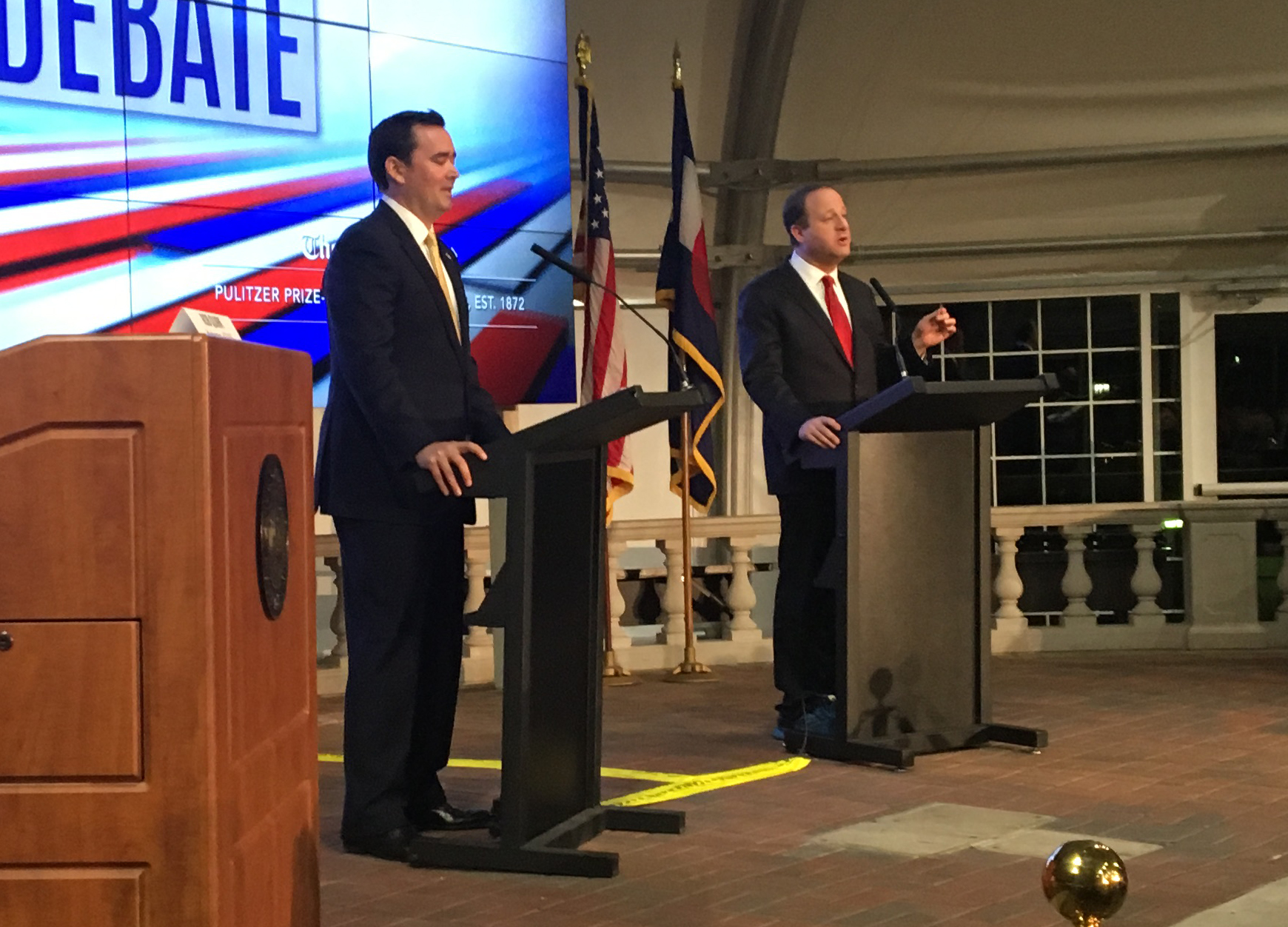
The state’s leading environmental group, Conservation Colorado, supports 112 and opposes 74.
“Oil and gas development has been expanding and getting closer to our neighborhoods, schools, and hospitals – threatening the health and safety of Coloradans,” Conservation Colorado spokesman Jace Woodrum said in an email. “In recent years, the oil and gas industry has refused to consider even basic commonsense regulations like moving drilling and fracking away from schools and playgrounds. Now voters will get to decide.”
Conservation Colorado deputy director Jessica Goad outlined her organization’s opposition to 74: “The impetus for Amendment 74 was Proposition 112 – the setbacks measure – but in reality Amendment 74 is just a hammer in terms of fixing the problems that the Farm Bureau and the oil and gas industry contend that the setbacks measure would create.
“That’s because 74 is poorly written and defective and it’s incredibly broad and has tremendous unintended consequences,” Goad added. “It goes so far beyond oil and gas, so far beyond natural resources. This would affect every aspect of state and local government and would hamstring the ability of our state and local leaders to pass any sort of health and safety measures whatsoever.”
That’s basically what Polis said about 74 in his COGA speech: “[Amendment 74] would have far-reaching ramifications well beyond oil and gas development. Does anybody in this room really believe that local government or state government should not be able to zone [to restrict] hog farms, cannabis, or strip clubs?”
Dobkin, the Stapleton spokesman, offered this emailed statement on 74:
“Walker has said he is supportive of the concept but thinks there could be unintended consequences. He would support using the legislative process to address concerns different stakeholders have.”
That “unintended consequences” refrain comes up early and often in discussing 74 with candidates whose legal backgrounds inform their opinions.
“Amendment 74 is clearly aimed at protecting the private property rights that are under attack at the ballot every two years,” Republican Colorado attorney general candidate George Brauchler said, referring to 112 and past setback measures.
“I am a strong supporter of private property rights, especially when they can be eliminated or significantly and negatively impacted by government. I am supportive of the motivations and spirit of this amendment,” Brauchler, the 18th Judicial District Attorney, added. “However, the unintended consequences of the language of this amendment, if passed, would be devastating to municipalities and local governments, even when they do not seek to ‘take’ property. The unintended consequences are too extreme for Colorado. We can – and we should – do better at protecting private property rights.”
Brauchler’s Democratic opponent for state AG is Phil Weiser, a former Justice Department official in the Obama administration and dean of the CU law school Phil Weiser. He said private property rights don’t need another layer of protection at the state level.
“This amendment [74], if passed, will create considerable mischief and administrative burdens for local governments when they act to protect the public, health, and welfare of their citizens,” Weiser said. “Under federal constitutional law, there are adequate protections against the taking of property without just compensation.”
As for 112, Weiser says he’s opposed, although he adds he’ll defend and enforce the measure to the best of his ability if it passes and he’s elected.
“I appreciate the concerns that are motivating Proposition 112, but don’t believe that the measure is well-tailored to address this issue,” Weiser said. “As attorney general, I will first pursue addressing such concerns through collaboration with local governments and more effective work with the Colorado Oil and Gas Conservation Commission.”
Brauchler, too, says he’ll uphold the law if one or both of the measures passes, but he makes it clear he’s opposed to both.
“I will abide by the will of the voters on these issues, whether I agree with them or not,” said Brauchler, district attorney for Colorado’s 18th Judicial District. “[Proposition] 112, if passed, acts as a significant infringement of private property rights, while destroying one of the largest, most vibrant economic drivers in our state.”
U.S. Rep. Ken Buck is congressman for the sprawling 4th Congressional District, the most productive oil-producing district in the state. He declined to comment on Amendment 74 but made his feelings about Prop 112 very clear:
“I oppose Proposition 112. It is bad for Colorado’s economy and is particularly bad for the 4th Congressional District,” Buck said. “This attack on private property rights will not only leave energy industry workers jobless but will have a negative effect on families and businesses across the district.”
Buck’s Democratic opponent, veterinarian Karen McCormick, opposes both 74 and 112.
“Amendment 74 has disastrous implications for Colorado taxpayers and this measure will also discourage our officials from taking action to benefit communities or protect public resources,” McCormick said of a predicted wave of litigation. “Many of the taxpayers in my district are already financially overburdened and Amendment 74 will only add to the rising cost of living here.”
McCormick says 112 doesn’t really get at the heart of the problem with drilling operations near homes and schools. She says she’ll seek scientific solutions to mitigate the impacts of drilling.
“Coloradans have urged me to protect their livelihoods as our middle class continues to shrink,” McCormick said. “Proposition 112, in its current form, does not do enough to address hydraulic fracturing under homes and schools while threatening the livelihoods of thousands of working Coloradans and their families.”
Oil and gas development isn’t the only energy issue where Colorado’s candidates for governor are in disagreement.
They’ve also bickered over Polis’ call for Colorado to strive for 100-percent power production from renewable sources by 2040.
At the Oct. 13 Colorado Politics-Gazette debate in Colorado Springs, Stapleton said Polis’ proposal would cost $45 billion to achieve and would lead to “skyrocketing utility bills.”
Polis said setting such a goal – not a mandate – is important as a way to strive for cleaner air and counteract climate change. He has said he would use “market mechanisms” to push renewables, such as “removing regulatory barriers to siting wind projects on state lands.”
Stapleton, meanwhile, says he favors an “all of the above” approach to energy while emphasizing the economic benefits of oil and gas, and says he is opposed to government subsidies of alternative energy.






